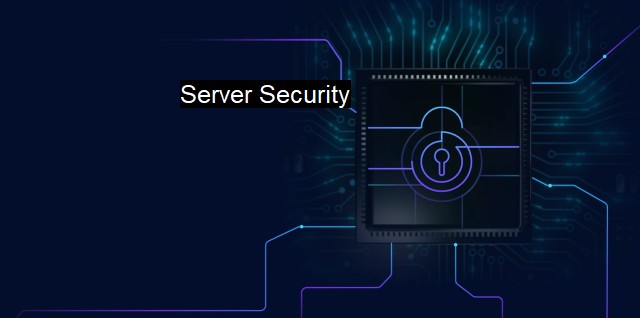What is Server Security?
Server Security Strategies: Essential Techniques to Protect Your Organization's Critical Infrastructure from Modern Cyber Threats
Server security is an integral facet of cybersecurity practices, aimed at ensuring that servers operate with optimal functionality, free from potential threats. Servers are potent devices that serve as central points of networks responsible for managing communication between various systems, whether within an organizational or wider internet context. This makes them critical sources for data storage, making them attractive targets for hackers. Therefore, their security is of paramount importance to secure sensitive data and maintain order in basic operational processes.Server security encompasses numerous protection methodologies and strategies instituted to bolster server reliability, safety, and performance. It primarily focuses on securing servers' proprietary and sensitive data from unauthorized access, alteration, or destruction. it secures the intrinsic server's resources, ensuring they are only accessed and utilized by certified entities.
An essential element of server security is the antivirus protection. Antivirus software plays a critical role in detecting, preventing and removing malicious software (malware) from the server. These malware threats can include viruses, worms, ransomware, spyware, and Trojan horses, which can infiltrate servers and endanger stored data. The antivirus software scans individual files or directories, comparing the data to a database of known malware signatures. If a match is found, the software either removes the malicious software or blocks access to prevent its execution.
Firewalls further contribute towards establishing server security, working alongside antivirus solutions. A firewall acts as a security guard between inclusive networks, monitoring and controlling network traffic according to security rules. Inbound scrutiny prevents unauthorized access to the network, acting as the first line of defense against security threats, while outbound scrutiny stops outgoing traffic to certain dubious websites.
Another aspect of server security is intrusion detection systems (IDS) and intrusion prevention systems (IPS). IDS are designed to identify fast-spreading malware, recognizing unusual activity through a continuous vigil on the volatility of server activities and flagging distrustful actions. Meanwhile, IPS curbs security threats by rejecting packets confirmed as threats, hence, ensuring that consequent data transmitted via the network is not infected.
A significant step in server security processes involves strong password and user management measurements. Enforcing complex, hard-to-crack passwords and utilization of two-factor authentication forestalls unauthorized personnel from gaining server access. Also, routine user account audits help limit the quantity of unused and obsolete account access points into the server.
Regular patching and updates to the server operating system, applications, and security software helps protect against potential vulnerabilities, threats, and malware. These updates often contain fixes to known security issues, so it’s crucial not to neglect this critical piece of server security.
To shore up server security, regular backups should be performed. Reliable and consistent backup strategies are invaluable. In the event of a catastrophic data loss incident, up-to-date backups can restore server operation in its entirety or at least recover the critical data.
Server security is a multi-faceted discipline within the broad field of cybersecurity, involving antivirus software, password management, firewalls, IPS/ IDS systems, routine updates, and more, to ensure the safety, reliability, and performance of servers and the networks they operate within. The omnipresent and escalating threats in today's digital landscape necessitate that server security should never be taken lightly, but instead, requires vigilance, skill, and constant learning.

Server Security FAQs
What is server security and why is it important?
Server security refers to the measures taken to protect computer servers from unauthorized access, theft, or damage. It is important because servers store and handle sensitive information and resources, making them a common target for cybercriminals.What are the common threats to server security?
Common threats to server security include malware infections, DDoS attacks, phishing attempts, ransomware attacks, and unauthorized access through weak passwords or unpatched vulnerabilities.What are some best practices for ensuring server security?
Some best practices for ensuring server security include implementing strong passwords, regularly updating software and security patches, conducting regular backups, limiting user access and permissions, using firewalls and antivirus software, and monitoring network traffic for suspicious activity.What should I do if I suspect a security breach on my server?
If you suspect a security breach on your server, the first thing you should do is disconnect it from the network to prevent further damage. Then, contact your IT security team or a cybersecurity expert to investigate and rectify the issue. It's also important to notify any affected parties and take steps to prevent future breaches from occurring.| | A | | | B | | | C | | | D | | | E | | | F | | | G | | | H | | | I | | | J | | | K | | | L | | | M | |
| | N | | | O | | | P | | | Q | | | R | | | S | | | T | | | U | | | V | | | W | | | X | | | Y | | | Z | |
| | 1 | | | 2 | | | 3 | | | 4 | | | 7 | | | 8 | | |||||||